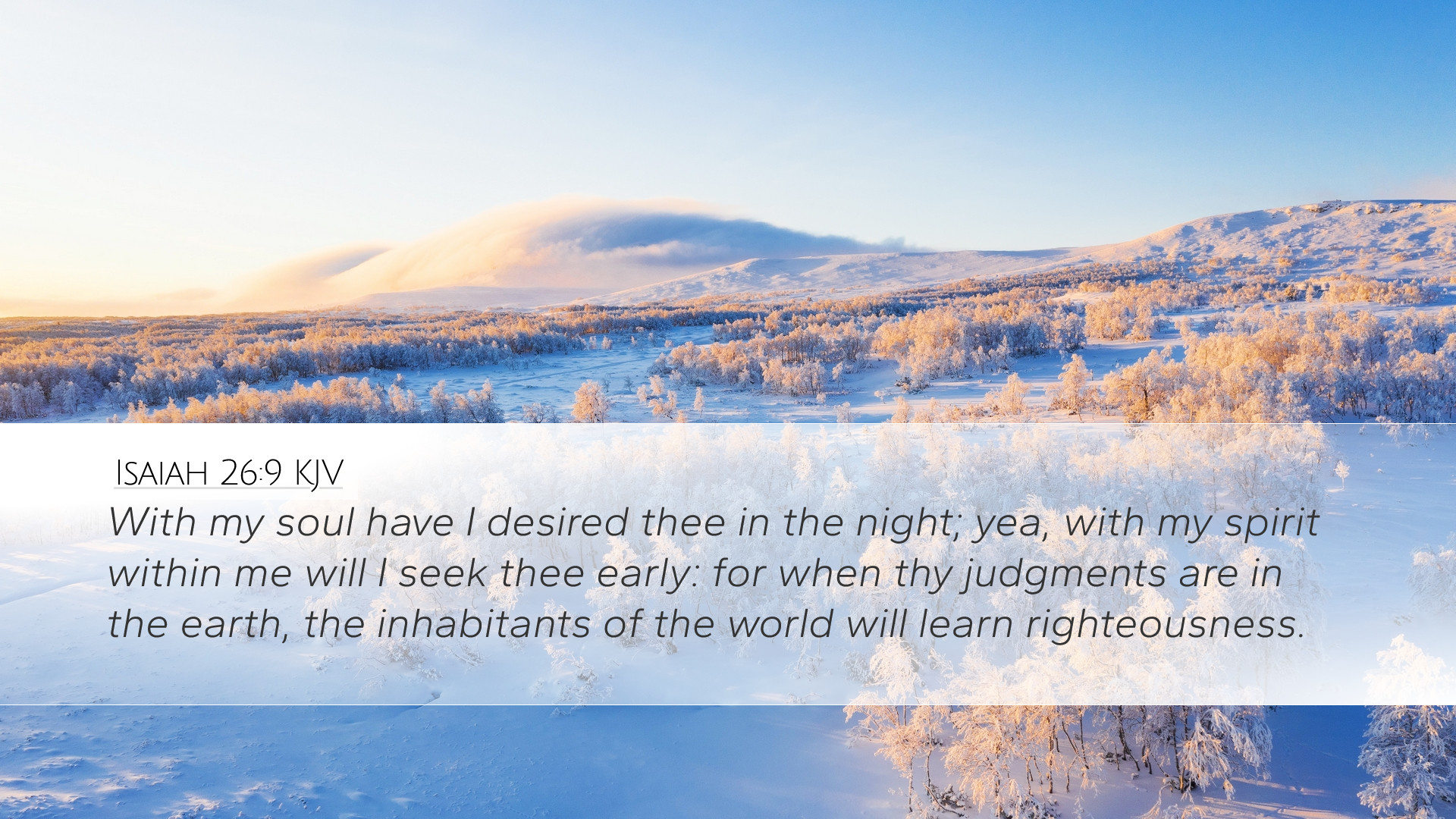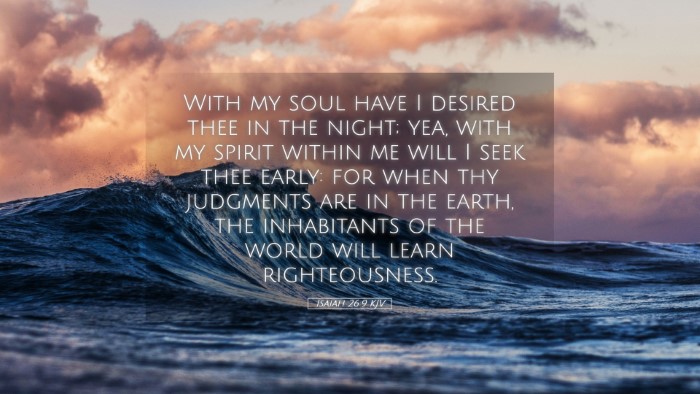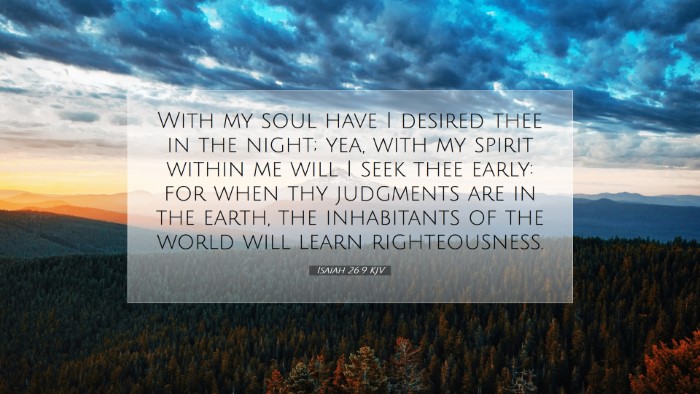Commentary on Isaiah 26:9
Isaiah 26:9 states: "With my soul have I desired thee in the night; yea, with my spirit within me will I seek thee early: for when thy judgments are in the earth, the inhabitants of the world will learn righteousness." This verse is a profound expression of the longing and seeking nature of the soul in pursuit of God amidst trials and divine judgments. Below is a synthesis of insights from renowned public domain commentaries.
Contextual Understanding
The context of Isaiah 26 is the proclamation of God's faithfulness and the assurance of salvation for His people. The chapter serves as a hymn of trust amidst impending judgments, reflecting a contrast between the fate of the unrighteous and the security of those who trust in the Lord.
Spiritual Longing (Matthew Henry)
Matthew Henry emphasizes the deep yearning of the believer's heart for spiritual communion with God. He notes:
- Desire for God: The phrase "with my soul have I desired thee in the night" signifies a profound yearning for God's presence, especially during times of darkness and trial.
- Seeking Early: The notion of seeking God "early" indicates urgency and the importance of prioritizing spiritual pursuits over worldly distractions.
The Role of Judgments (Albert Barnes)
Albert Barnes discusses the implications of God's judgments mentioned in this verse:
- Judgments of God: Barnes interprets God's judgments as being both corrective and instructive, leading humanity towards righteousness.
- Learning Righteousness: The inhabitants of the world gaining knowledge of righteousness through divine justice speaks to the transformative power of recognizing God's sovereignty in history.
Inner Spiritual Conflict (Adam Clarke)
Adam Clarke offers insight into the internal experience of the believer:
- Night as Metaphor: In Clarke's view, the "night" symbolizes a period of spiritual desolation or difficulty, where the soul embarks on a deeper search for God.
- Spirit’s Resolve: The resolution to seek God with the spirit highlights the necessity of heartfelt dedication and perseverance in one’s faith journey.
Intercessory Nature of Prayer
This verse can also be seen as reflecting the intercessory nature of prayer, where the believer's desire for God extends beyond personal longing to a wider concern for the world. The seeking of God can inspire a communal awakening to righteousness among nations.
The Assurance of Divine Presence
In summary, Isaiah 26:9 encapsulates a believer's heartfelt desire and the accompanying action of seeking God amidst the chaos of life. The insights from the commentaries illuminate several key aspects:
- The Power of Desire: The text conveys the importance of actively desiring a relationship with God.
- Seeking Amidst Trials: In times of judgment and distress, there is an opportunity for spiritual growth and understanding of righteousness.
- The Corporate Response: The verse also suggests a collective response to God’s judgments, urging all inhabitants to recognize and turn towards divine truth.
Conclusion
Overall, Isaiah 26:9 is a profound acknowledgment of the believer's quest for divine presence, especially in challenging times. Through the insights of various commentaries, we understand that spiritual longing should guide our actions, bringing us to seek God earnestly. In this pursuit, we not only nurture our souls but also encourage a divine awareness that can lead others towards the path of righteousness. This verse serves as a reminder of the interconnection between the soul's yearning for God and the broader context of God’s dealings with humanity.


